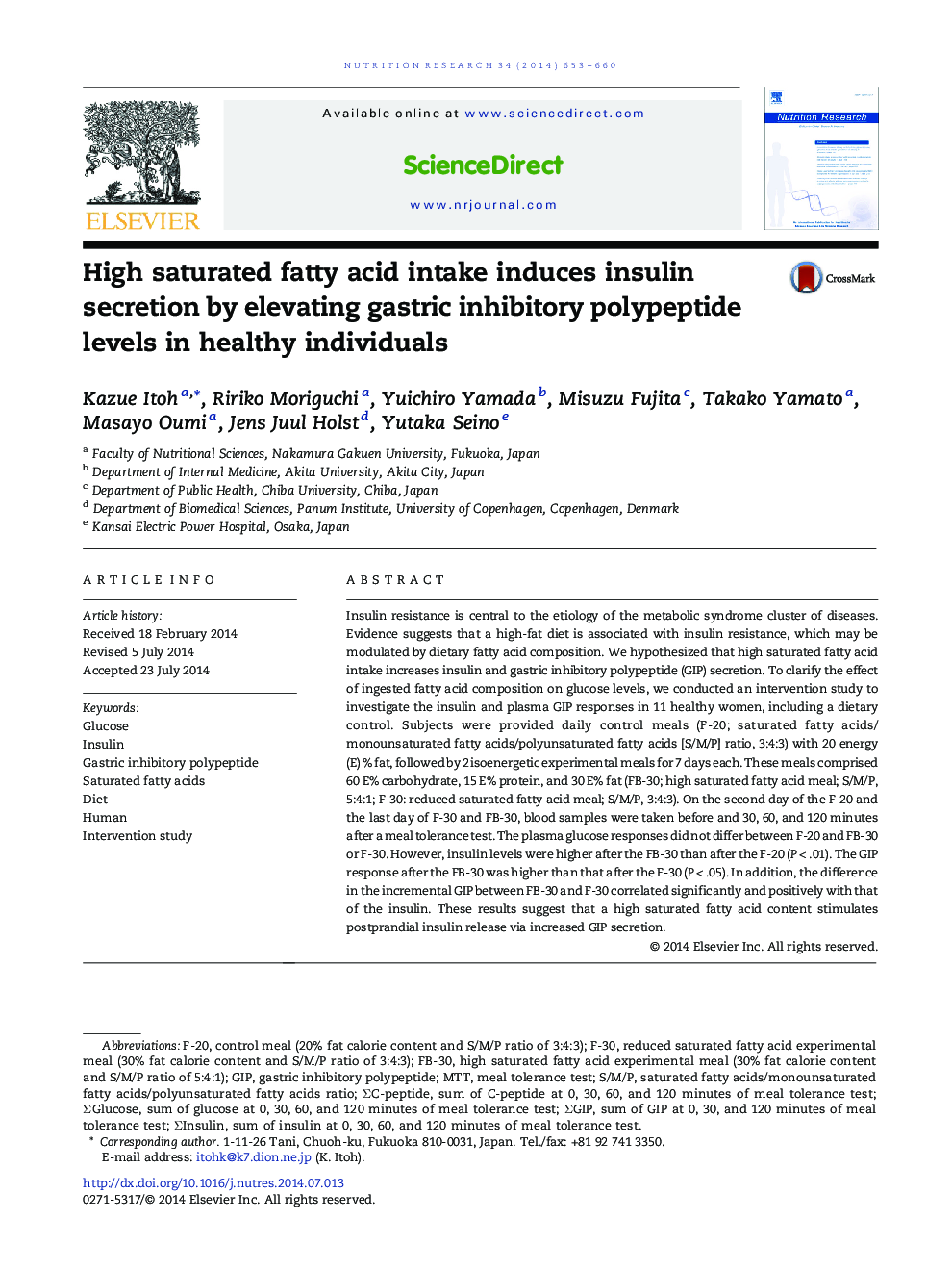| Article ID | Journal | Published Year | Pages | File Type |
|---|---|---|---|---|
| 5904356 | Nutrition Research | 2014 | 8 Pages |
Abstract
Insulin resistance is central to the etiology of the metabolic syndrome cluster of diseases. Evidence suggests that a high-fat diet is associated with insulin resistance, which may be modulated by dietary fatty acid composition. We hypothesized that high saturated fatty acid intake increases insulin and gastric inhibitory polypeptide (GIP) secretion. To clarify the effect of ingested fatty acid composition on glucose levels, we conducted an intervention study to investigate the insulin and plasma GIP responses in 11 healthy women, including a dietary control. Subjects were provided daily control meals (F-20; saturated fatty acids/monounsaturated fatty acids/polyunsaturated fatty acids [S/M/P] ratio, 3:4:3) with 20 energy (E) % fat, followed by 2 isoenergetic experimental meals for 7 days each. These meals comprised 60 E% carbohydrate, 15 E% protein, and 30 E% fat (FB-30; high saturated fatty acid meal; S/M/P, 5:4:1; F-30: reduced saturated fatty acid meal; S/M/P, 3:4:3). On the second day of the F-20 and the last day of F-30 and FB-30, blood samples were taken before and 30, 60, and 120 minutes after a meal tolerance test. The plasma glucose responses did not differ between F-20 and FB-30 or F-30. However, insulin levels were higher after the FB-30 than after the F-20 (P < .01). The GIP response after the FB-30 was higher than that after the F-30 (P < .05). In addition, the difference in the incremental GIP between FB-30 and F-30 correlated significantly and positively with that of the insulin. These results suggest that a high saturated fatty acid content stimulates postprandial insulin release via increased GIP secretion.
Keywords
Related Topics
Life Sciences
Biochemistry, Genetics and Molecular Biology
Endocrinology
Authors
Kazue Itoh, Ririko Moriguchi, Yuichiro Yamada, Misuzu Fujita, Takako Yamato, Masayo Oumi, Jens Juul Holst, Yutaka Seino,
